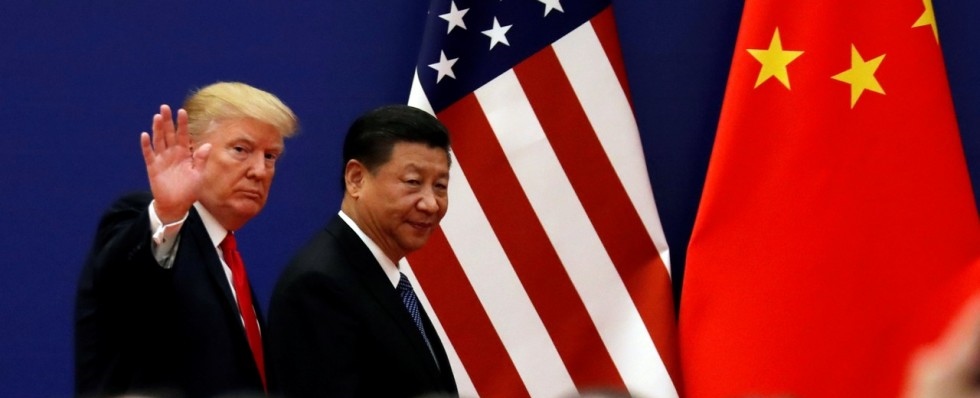Trump’s strategy against China
April 9, 2018 | Expert Insights

After weeks of strong rhetoric against China’s trade practices, US President Donald Trump softened his stance against Beijing. He said that even though there are fears of a trade war, he is hopeful that the two countries will reach a compromise.
Background
China is a major market for US agricultural products, machinery, and cars as well as other products. In 2016, China was the third largest market for US exports. On the other hand, according to the American Apparel & Footwear Association, more than 41% of clothing and 72% of footwear sold in the US are made in China.
“US-China bilateral trade investment ties are integrated with global supply chains. So a US-China trade war is necessarily going to have an effect on companies and consumers in other countries,” said Scott Kennedy, an expert on Chinese economic policy at the Center for Strategic and International Studies in Washington.
A trade war between the world’s two biggest economies threatens to wear down multilateral and bilateral trade regulations governing global markets since the 1990s. “A rules-based system gives a basic sense of order to international economic relations. If that is gone, then when the next global financial crisis hits, we could see a return to global tit-for-tat protectionism, a pattern of the 1930s that we should not wish to repeat,” noted Gregory Shaffer, a professor at the University of California’s Irvine School of Law.
Aside from trade, the disagreement indicates a change in US-China relations where economic and political ties no longer encourage reforms and liberalization in China. This was partly the reason behind the disputes between the US and China in the 1970s.
Analysis
In recent months, US administration has levied harsh sanctions on China. In March 2018, Washington announced tariffs on US$60 billion worth of Chinese imports. The trade sanctions triggered retaliation from China’s foreign ministry, which said that Beijing would “take all legal measures to protect our interest.”
China has since retaliated. On March 23rd 2018, China unveiled tariffs on $3 billion of US imports as a response to the US’ actions. On April 3rd, 2018 — US threatened to target another $50 billion in Chinese goods. On April 4th, 2018, China warned of tariffs on another $50 billion in American goods. US stock markets are rattled. The Dow closed down 572 points, or 2.3%, on April 6 after falling as much as 767 points earlier in the day.
After days of strong rhetoric, Trump said in a tweet on Sunday that China will remove trade barriers as that was the "right thing to do." The president also expressed optimism that the countries would strike a deal on intellectual property. “President Xi and I will always be friends, no matter what happens with our dispute on trade. China will take down its Trade Barriers because it is the right thing to do,” the US president tweeted. “Taxes will become Reciprocal & a deal will be made on Intellectual Property. Great future for both countries!” Trump added.
In a commentary on Sunday, Xinhua News Agency said the trade tensions were a “fight between unilateralism and multilateralism, and a fight between protectionism and free trade”. “The US is set to become a public enemy of global multilateralism,” it said. The paper also added, “The same sort of strategic resolve that China had in the Korean war is being built up across the country to beat the Trump administration’s trade attack.”
Meanwhile, China Chamber of International Commerce has stated, “The US has severely disturbed the normal order in global trade and caused immeasurable losses to both countries’ industrial and business sectors.”
Renmin University international relations professor Shi Yinhong said has spoken about the trade ties between the countries noting, “China is under huge pressure and could make unprecedented compromises, which may further encourage the administration of US President Donald Trump to demand more in the future.”
Assessment
Our assessment is that Trump seems to be following a pattern when it comes to his foreign policy. He employs an aggressive posture in the beginning and then eventually softens it to allow a compromise. This is the strategy he employed with North Korea, Canada & EU and he seems to be doing the same with China. Beijing would want to avoid a trade war at all costs and might compromise on Washington’s demands giving Trump a definitive victory on his hands








Comments